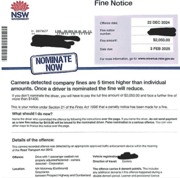SDC Rewards Member
Upgrade yours now
Be very wary!
Robert Gottliebsen is a journalist take that into account as you read, byr I find his argument quite compelling.. Ted
IF YOU OWN PROPERTY VOTE NO FOR THE TREACHEROUS VOICE REFERENDUM OR YOU WILL LOSE YOUR TITLE AND SECURITY OF OWNERSHIP IN THE FUTURE
Why the Voice could hurt parliament, capital system: Robert Gottliebsen.
Anthony Albanese is pushing for a referendum to change the constitution to recognise the role of First Nations people in Australia’s history. Picture: Martin Ollman/Getty Image
Slowly the Voice debate is swinging to issues like property ownership, rent and the allocation of government revenue.
I could say welcome to my country, but it is a very unwelcome country.
On election night last May, among the most inspiring words of our newly elected Prime Minister Anthony Albanese was his embrace of a referendum to change the constitution to recognise the role of First Nations people in Australia’s history.
Albanese aimed to bring together our past and our present and end current and future basic differences.
At the time, like most Australians without Aboriginal heritage, I knew very little about how the so-called voice would work, but the Prime Minister’s sentiments made me an early supporter.
Then the detail started to emerge, and it became apparent that we were being asked to vote on a proposal without full knowledge of what the legislation to be passed by parliament would contain. I found this both strange and disturbing.
Then came constitutional experts, who warned us that while the proposed wording change to the constitution might look innocuous to a lay person, keywords had legal meanings which the High Court could easily interpret to give the First Nations body very wide approval powers over the actions of the parliament of Australia. Almost certainly that would include the federal budget.
The Australian’s legal affairs writer Chris Merritt, who is also vice-president of the Rule of Law Institute of Australia, explains that the constitutional provision has been drafted in a way that would permit the First Nations body to dissipate its efforts across the entire range of federal public policy – a very powerful body indeed.
More recently the debate has taken an even more dangerous course and a group of First Nation people led by a member of the upper House of the federal parliament now opposes the Voice referendum because it inhibits First Nations’ rights to be declared the real owners of all land in Australia.
Some people in this group take the natural next step and say that as people with Aboriginal heritage own the land, those who occupying it should pay rent.
The Greens, whose support the government needs to pass most of it controversial legislation, say the voice is merely a first step and a “treaty” must follow. The word “treaty” in this context usually means property ownership and rent.
We are now looking at a potential attack not just on the power of our parliament but our capital system, which operates on the basis people who buy, and mortgage property have title to the land.
It’s possible – maybe even likely – that reference to land ownership will be contained in this so far secret legislation.
Perhaps that’s why it’s being kept secret.
In normal circumstances when groups of people or individuals want to reconcile their views and move forward, then any issues involving property, money or rent must be put on the table as part of the reconciliation. If not addressed, then such issues will arise again and again.
Now that section of the First Nation community has raised the issue of property and rent to be paid by Australian householders and commercial property “owners” for occupying land they “don’t own” the issue is in the table.
The government is pouring very large sums into places like Alice Springs, and the overall Australian community has little concept of just how this money is being distributed.
The same applies to the large royalties being paid by mining companies.
Reconciliation is not all one way. It should be a two-way exercise, with both sides coming together and prepared to give ground.
In this context, Australian land covering large parts of WA, SA, NSW Queensland and Northern Territory has the potential to be used as major solar power generation sites and for the growth of carbon absorbing plants like saltbush.
This will be highly remunerative. The land is part of Aboriginal land rights. We need to talk about these things now, rather than leave it to heated debates later.
I don’t pretend to have any knowledge of the forces that are causing First Nations people to attack each other and wreck property.
Obviously alcohol plays a big role, but I suspect deep in the background is the way the abundant cash is being distributed and the difficulty of First Nations people in those areas have in owning a house.
We are now discovering in our capital cities and regional areas that when you spray money into a community, as we did in Job Keeper, it can have bad impacts on the younger generation irrespective of their colour or racial origins.
We are rushing into a referendum that is great superficial community appeal where we have not sorted out the details and kept some of the details that have been sorted out secret. Lasting reconciliation agreements negotiate these things first. By rushing we may head into an area of dispute it will last many decades.
Finally, our Prime Minister is telling us that the new parliamentary body will not impact the broader workings of the nation’s parliament.
I suspect most of the nation is like me and wants to believe him, but the Prime Minister is not a constitutional expert and those with far more knowledge of this subject are warning us that he is wrong.
ROBERT GOTTLIEBSEN
BUSINESS COLUMNIST
Robert Gottliebsen has spent more than 50 years writing and commentating about business and investment in Australia. He has won the Walkley award and Australian Journalist of the Year award.





